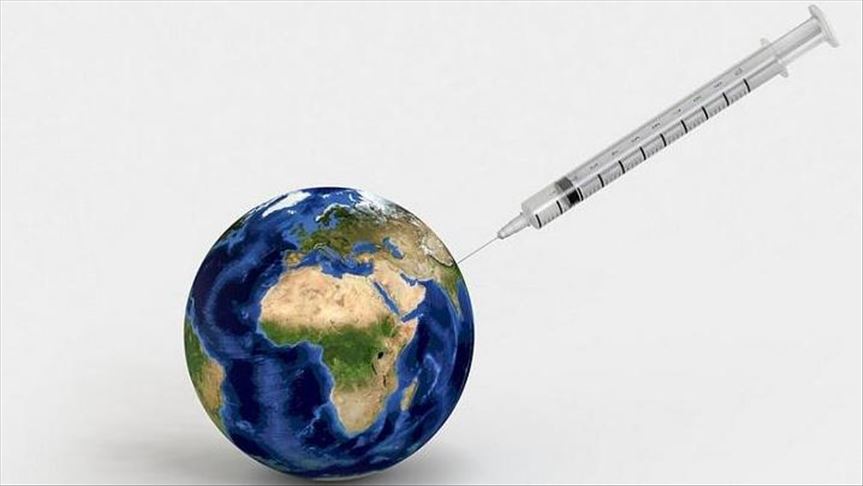Mass virus vaccination unlikely until mid-2021: WHO
World Health Organization says 6 to 9 vaccine candidates in phase three of trials

GENEVA
The World Health Organization said Friday it is unlikely that there will be mass vaccination against the novel coronavirus before the middle of the next year, and the organization's chief said they will only be used when they are safe and effective.
WHO Director-General Tedros Adhanom Ghebreyesus at a bi-weekly press webinar said he wanted to tell people in the "anti-vax movement" that vaccines helped fight Ebola in Africa, they reduced child mortality and helped in the eradication of diseases like smallpox.
"Going forward with vaccines for COVID-19, we have a good number of promising ones. They will only be used when they are found to be effective and safe, that is what I would like to assure the world," said Tedros.
Earlier, Margaret Harris, a spokeswoman for the WHO, answered questions at a twice-weekly UN briefing in Geneva about expectations for a novel coronavirus vaccine timeline.
"In terms of realistic timelines, we're really not expecting to see widespread vaccination until the middle of next year," said Harris.
She said there are a considerable number of candidates now that have entered phase three vaccine trials where the WHO knows of at least six to nine that have got quite a long way with the research already.
"The phase three trials is when you compare, you'd have a large group of people and half get the vaccine, half get a placebo, or a different known vaccine, such as the meningitis vaccine.
"Then you essentially have to follow those people and see if there's a difference in those groups," she said.
The difference between the measurements would be checked for the two groups, from those who receive the vaccine and those who do not.
"We're looking at ideally 50% or more. That means that you know that when you give it to a large group, your research has indicated that 50% of them will be protected," said Harris.
"The lower limit of that is 30%. But we want to see at least 50% protection with sort of variation around that."
Harris said the world is seeing many different vaccines, and there is a need to compare them "head to head" to see which one is offering the "best protection and the greatest safety levels as well."
In a virtual press conference on Thursday, major global drug companies said no matter how urgently action is needed against the novel coronavirus, and they will not cut corners and rush a vaccine.
The chief executive officers of Eli Lilly, Gilead, Pfizer, Roche, and Merck spoke at the conference hosted by the Swiss-based International Federation of Pharmaceutical Manufacturers and Associations.
Harris was asked Friday by one journalist what the WHO thought of the notion that the US might rush through a vaccine before the November presidential election.
"Our work is to get all countries to work together and get all the information and do our utmost to coordinate and ensure that all the information coming in is used to get the very best for the global public good," said the WHO spokeswoman.
Anadolu Agency website contains only a portion of the news stories offered to subscribers in the AA News Broadcasting System (HAS), and in summarized form. Please contact us for subscription options.

